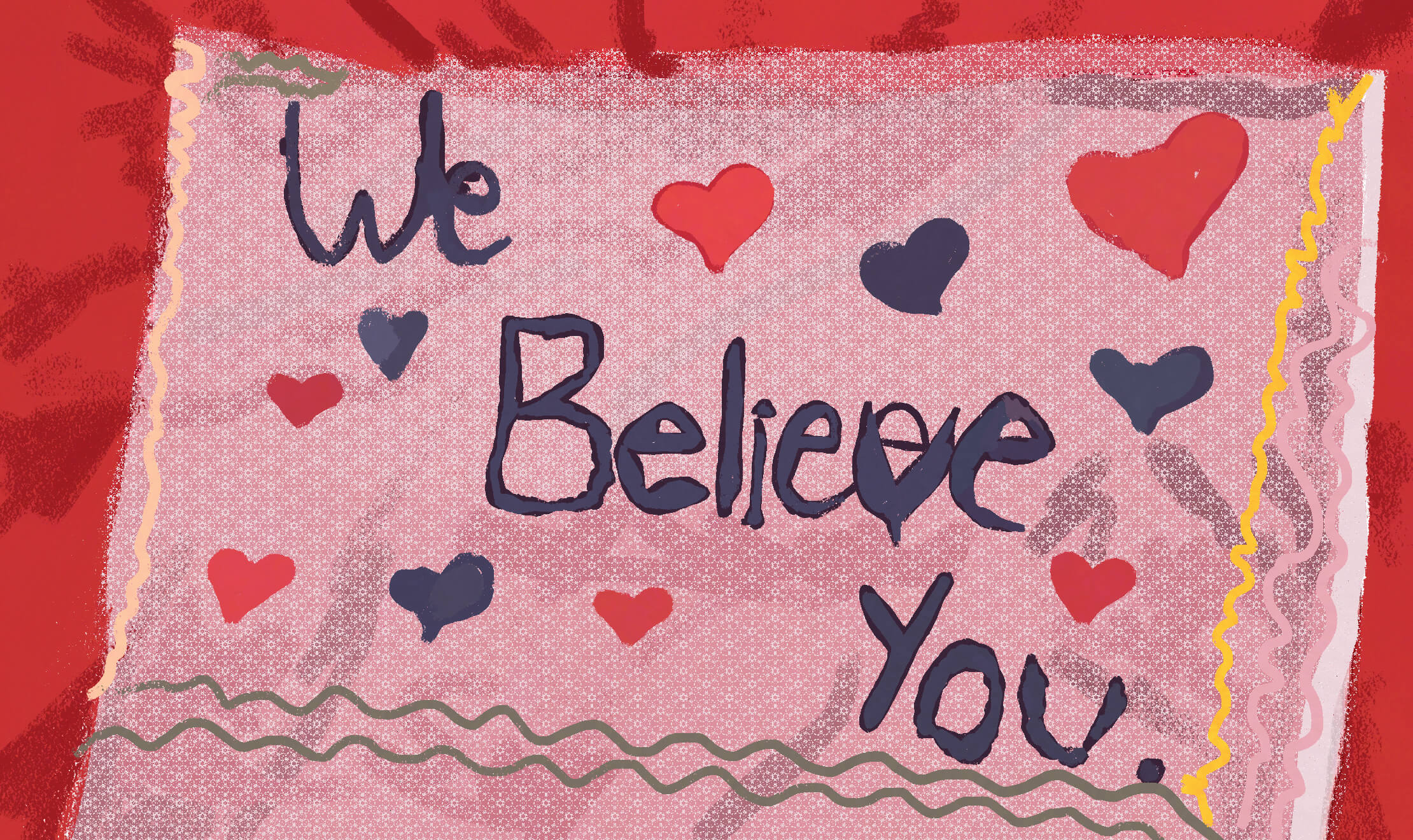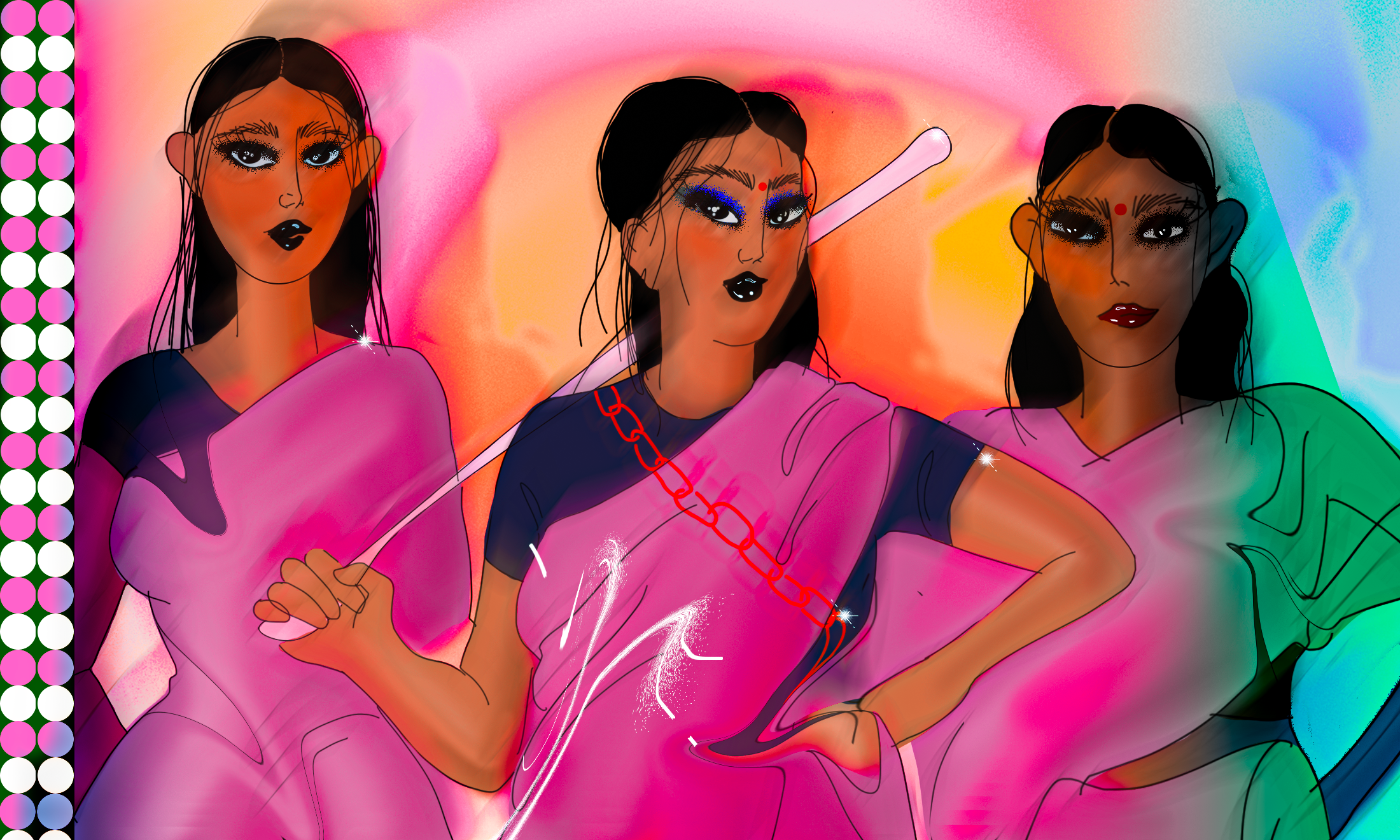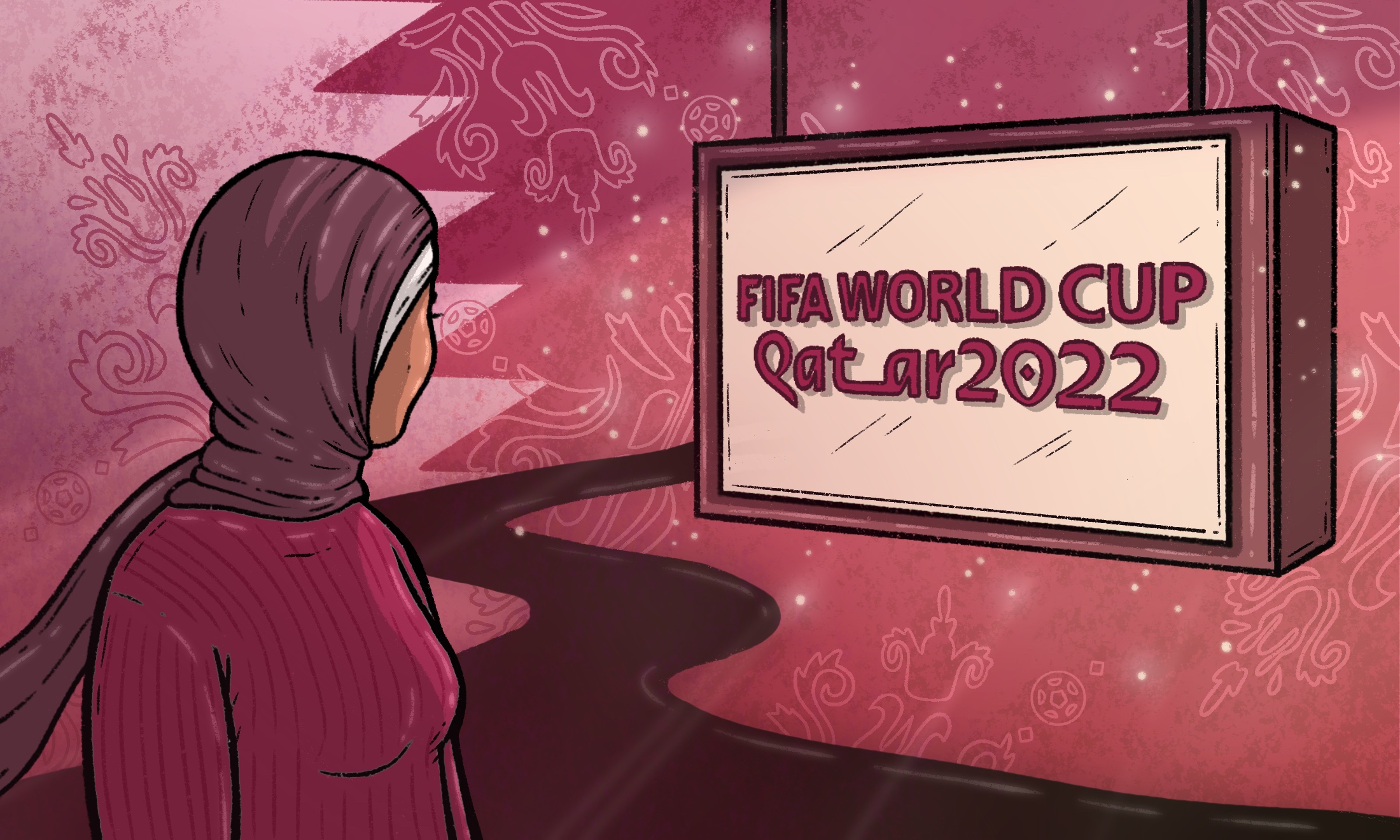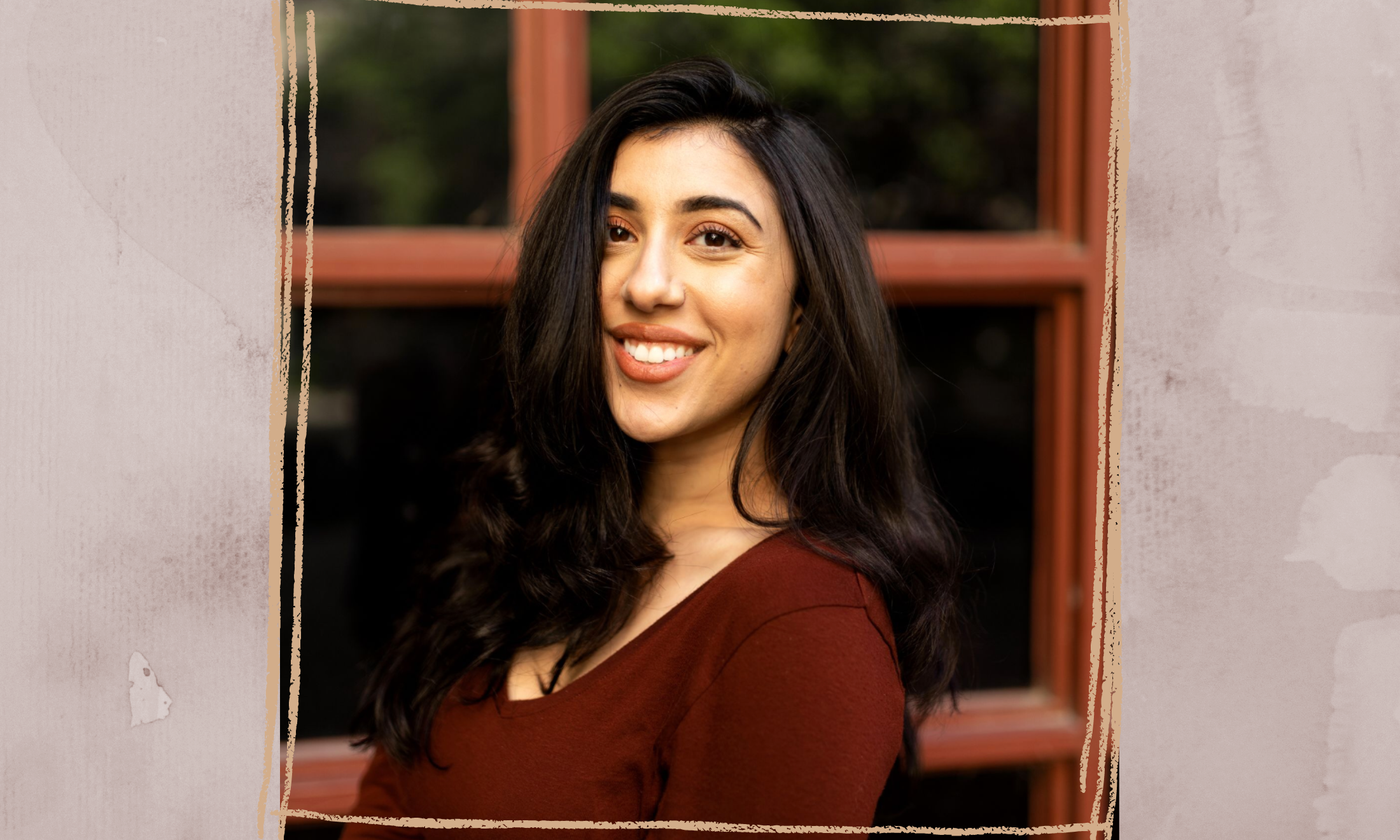
Diyora Shadijanova
How crafting a quilt helped me process my shame of clergy abuse
The Monument Quilt Display features over 3,000 pieces hand-stitched by survivors of sexual and intimate partner violence.
Hannah Sawyerr and Editors
02 Jul 2021
Content warning: sexual abuse
Compared to the thousands of beautifully painted and hand-stitched quilts, this particular one was unimpressive. The Monument Quilt Display took place for three days in 2019 and featured over 3,000 stories by survivors of sexual and intimate partner violence stitched onto pieces of red fabric that blanketed the National Mall in Washington D.C. Some pieces presented statistics about gender-based violence, others were adorned with elaborate paintings of bodies of all shapes and sizes, some featured quotes of reclamation by literary giants like Maya Angelou.
The quilt in question wasn’t as refined as the others. Its border was a scribbled seaweed green and mustard yellow that looked like it had been drawn by a non-dominant hand. It was sloppily covered in school uniform-blue painted hearts. The writing on the quilt was misspelled and clearly read “We Belive You” before it was corrected by the creator. Despite all of this, it resonated with me. There were no qualifiers. No explanation for why a survivor should be listened to. Just a simple, short, and undeniable truth. We Believe You.
For context, I am a survivor of clergy sexual abuse; when a member of religious clergy uses their position to sexually exploit members of a congregation. In my case, the abuser was a youth leader at my former church in my hometown in New Jersey and the attacks occurred over the course of my junior year of high school when I was between 16 and 17 years old. One year later, during the summer after I had graduated high school, I decided to confide in a church elder about what happened to me. She told me, in hushed tones, that my former youth leader was a repeat sex offender who had spent years in prison for sex-based crimes before joining the church over a decade ago.
“I struggled with the idea that I was not a ‘good victim'”
I spent the entire day thinking about how one man can be so adored by a community of people, that they would sacrifice the well-being of teenagers. How several adults in my life knew this information and decided to only speak about it in whispers. I reasoned that if this man was a repeat offender, there must be other people in my community who were going through what I was, and I believed them before I even knew of them.
That night, I told my parents the secret I had kept. The next morning, they drove me to a police station where I made statements to several officers and detectives. For every part of my experience that I mustered the courage to share, I was met with a series of questions.
“Are you sure you weren’t dating him?”
“Where were your parents?”
“Why are you choosing to report this incident now?”
During the second year of my undergraduate degree, I still struggled with feeling like my experience was unimportant and I desperately wanted to be around people who understood what I endured. This feeling led me to volunteer for FORCE: Upsetting Rape Culture, the Baltimore-based organisation behind The Monument Quilt display. At the FORCE studio I bore witness to many survival stories during a time when I questioned the validity of my own. I never doubted them, but still struggled with the idea that I was not a “good victim.”
I convinced myself that I was “too grown” for what happened to me. That only small children are victims of clergy sexual abuse, so I should have “known better.” Along with my age, I’m not a small girl and my abuser is not a large man. In fact, my abuser and I both stand at about 5ft 7in. I didn’t see stories like mine being amplified, so in turn, I believed that it wasn’t one people would believe to be worth listening to. The “We Belive You” quilt spoke a message that I desperately needed to hear. You are believed.
“As survivors, sometimes we tend to hold space for everyone’s stories but our own”
Towards the end of my night in Washington D.C., I decided to go back to the quilt I had found earlier. Despite the sloppily painted hearts and spelling error, I loved it because… I had created it. I don’t remember much about the day I made it other than the fact that I was at the FORCE studio and I had attempted to decorate a quilt to pass the time. Although the process of making it was a forgettable one, I believe it was a tiny miracle that out of 3,000 displayed, I was able to find mine. As survivors, sometimes we tend to hold space for everyone’s stories but our own. We hear the stories of other survivors and when they speak about what makes them feel small, we listen and hear a song of resilience. I thought, if I can listen to the experiences of other survivors and know that they are all different, all valid and all worthy of protection, why wouldn’t I extend myself the same love and grace?
Two years have passed since I discovered my own quilt. Since then, I’ve spent many nights considering the heavy role shame has played in my life. We live in a world that thrives on it, and this is resoundingly true for survivors, even after we gain the courage to speak up. I’m proud of how far I’ve come. I’m proud of the way I am learning to navigate the world as a woman who fights for stories like mine to be told. I’ve realised that allowing space for people to tell their stories is a small and necessary step to ensuring that they do not feel as alone as I once did. Despite the many years that I battled with my own regret, I’ve learned the truth: that our stories are in no way the same, but they are all worthy of being heard. Now, even on the days when I draw my strength from nothing other than the undeniable fact that I survived, I still choose to say to myself, I believe me. I love me. I am unashamed.
Because there is nothing shameful about survival.
***
If you have been sexually assaulted, whether as an adult or a young person, it’s important to remember that it wasn’t your fault. Sexual violence is a crime, no matter who commits it or where it happens. Don’t be afraid to get help.
If you’ve been sexually assaulted, there are services that can help. In the UK, you can tell a doctor or nurse at your GP surgery, call the 24-hour freephone National Domestic Abuse Helpline, run by Refuge, on 0808 2000 247 or ring the Rape Crisis national freephone helpline on 0808 802 9999 (12-2.30pm and 7-9.30pm every day of the year). For more information on seeking help in the UK click here.
If you’re in the US, call the Domestic Violence and Intimate Partner Violence hotline: 1 (800) 799 – 7233. Help is available 24 hours a day, 7 days a week via phone and online chat. For more information on seeking help in the US click here.









